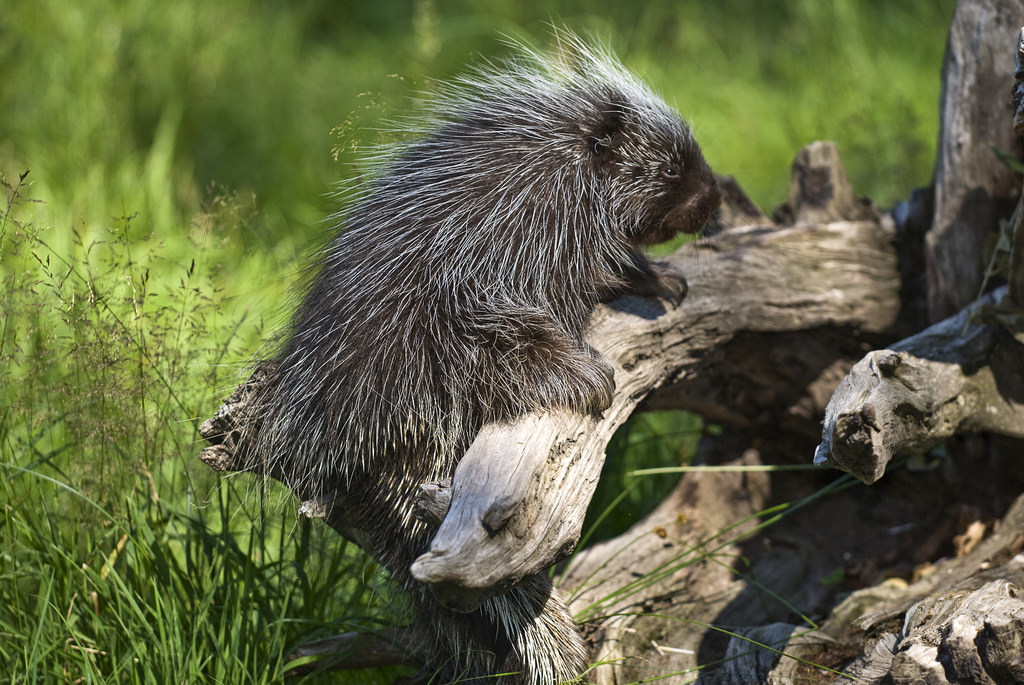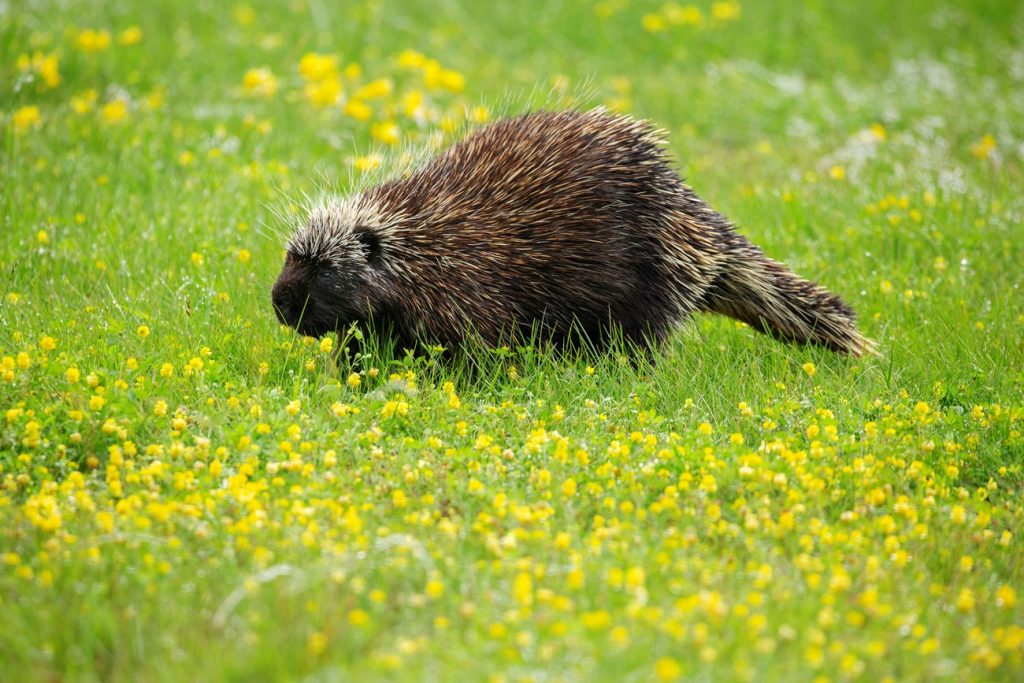
Preventing porcupines from damaging your garden can be a challenging task, as these spiky creatures are known for their destructive feeding habits. However, with the right strategies and techniques, you can minimize their impact and protect your garden. In this guide, we will provide a detailed description of various methods to prevent porcupine damage, encompassing both natural and humane approaches.

- Understand Porcupine Behavior: Before implementing any preventive measures, it is essential to understand porcupine behavior. Porcupines are primarily nocturnal animals, preferring to feed at night. They are herbivores and have a particular fondness for the bark, leaves, and twigs of trees and shrubs. Porcupines also have a strong sense of smell and are attracted to gardens with succulent plants and vegetables. Knowing their habits will help you design an effective defense strategy.
- Install Physical Barriers: One of the most reliable ways to prevent porcupine damage is to install physical barriers around your garden. The most commonly used barrier is a sturdy fence made of wire mesh or hardware cloth. Ensure that the fence is at least four feet high, with the bottom buried several inches underground to prevent porcupines from burrowing underneath. Regularly inspect the fence for any gaps or damage and promptly repair them.
- Utilize Repellents: Repellents can be an effective tool in deterring porcupines from entering your garden. There are both commercial and homemade repellents available. Commercial repellents often contain ingredients like capsaicin (derived from chili peppers), predator urine, or strong-smelling substances like garlic or ammonia. Apply these repellents to the perimeter of your garden, focusing on areas that are prone to porcupine activity. Homemade repellents can be made by mixing ingredients like hot sauce, vinegar, and water. Experiment with different formulas to find the one that works best for your garden.
- Create a Distraction Garden: Porcupines are attracted to gardens with tender and succulent plants. To divert their attention away from your desired plants, consider creating a distraction garden. Plant a separate area with their preferred plants or vegetables, allowing porcupines to feast on these while leaving your main garden untouched. This can significantly reduce the damage caused by porcupines.
- Remove Food Sources: Porcupines are less likely to target your garden if they do not find their desired food sources nearby. Regularly remove fallen fruit, nuts, and bird feeders, as these can attract porcupines. Additionally, trim tree branches that hang over your garden, preventing easy access for porcupines. Removing these food sources will help discourage porcupines from making your garden their feeding ground.
- Use Motion-Activated Devices: Motion-activated devices can startle and deter porcupines from entering your garden. Install devices such as sprinklers, motion sensor lights, or ultrasonic repellers. These devices activate when porcupines or other pests enter the designated area, scaring them away. Consistently move these devices to different locations within your garden to prevent porcupines from becoming accustomed to their presence.
- Maintain a Tidy Garden: A well-maintained garden can discourage porcupines from settling in. Regularly remove debris, fallen leaves, and clutter from your garden, as these can provide hiding places for porcupines. Trim any overgrown vegetation, reducing the potential hiding spots for these creatures. Keeping your garden tidy and well-manicured will make it less appealing to porcupines.
- Utilize Natural Predators: Encouraging the presence of natural predators in your area can help control the porcupine population. Animals such as coyotes, foxes, and large birds of prey feed on porcupines. Create a habitat that attracts these predators, such as providing shelter or nesting boxes for birds of prey. However, ensure that these predators do not pose a threat to other wildlife or pets in your area.
- Seek Professional Assistance: If porcupine damage persists despite your efforts, it may be necessary to seek professional assistance. Consult with local wildlife management authorities or pest control professionals who specialize in humanely dealing with porcupines. They can provide expert advice and potentially implement more advanced methods, such as trapping and relocation, to resolve the issue.

In conclusion, preventing porcupine damage in your garden requires a combination of strategies that include physical barriers, repellents, distraction gardens, and maintaining a tidy garden. Understanding porcupine behavior and implementing these preventive measures will help you protect your plants and enjoy a thriving garden. Remember to approach porcupine control humanely, respecting their presence in the ecosystem while safeguarding your garden.